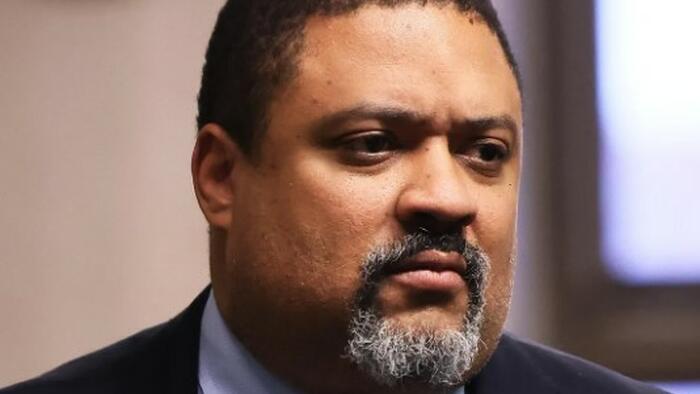The commercial real estate landscape in New York is facing significant turbulence amid ongoing investigations by Manhattan District Attorney Alvin Bragg. Recent reports highlight the seizure of electronic devices from Diana Boutross, a Vice Chair at Cushman & Wakefield, a major player in the commercial real estate sector, alongside her associates, including Ingrid Lewis-Martin, Chief Advisor to Mayor Eric Adams. The investigation appears to focus on various city office leases, particularly those overseen by Boutross, raising questions about potential ties between real estate dealings and political connections.
On September 27, investigators confiscated the phones of Boutross, Lewis-Martin, and Jesse Hamilton, the head of the city’s real estate department, at JFK Airport upon their return from a trip to Japan. The nature of the trip was reportedly a personal one, a long-awaited vacation with friends. However, the timing of the investigation suggests that authorities may be probing deeper into the connections and dealings related to city contracts, especially given Lewis-Martin and Boutross’s longstanding friendship. The involvement of such high-profile figures in the NYC real estate scene adds another layer of complexity to an already strained industry.
Cushman & Wakefield has maintained a significant relationship with New York City, holding a $40 million contract tied to a Bronx 911 facility since 2014, among other lucrative agreements. Boutross has been pivotal in managing these important contracts, which involve substantial office leasing for various city agencies. The firm’s history of handling major lease transactions, such as a recent deal for 110 William Street, underscores its influential role within the market and raises concerns over potential improprieties in how these agreements were secured or executed.
The legal proceedings initiated by Bragg’s office signal an intensifying scrutiny over the practices involving public contracts and the relationships between brokers, city officials, and the real estate sector. The searches conducted at Lewis-Martin’s home and the seizure of personal devices could indicate that investigators are hunting for evidence that could link political favoritism or corruption to real estate transactions. The implications of such findings could destabilize not only the involved parties but also impact the broader reputation of New York City’s commercial real estate market.
Arthur Aidala, representing Boutross, vehemently defended the integrity of the actions of his clients, asserting that the negative implications of these investigations are unfounded. He emphasized the long-standing relationship between Cushman & Wakefield and New York City’s government, suggesting that their work has consistently aligned with lawful practices. Aidala’s comments attempted to temper the concerns emerging from the investigation, insisting that all dealings were executed within the bounds of legality and transparency.
In conclusion, the unfolding investigation into Cushman & Wakefield and its connections to Mayor Adams’ administration reflects the increasingly intertwined nature of politics and commercial real estate in New York. As scrutiny heightens, the ramifications could reverberate throughout the sector, feeding into broader narratives about governance, finance, and accountability. The situation merits close observation as the legal outcomes may significantly reshape the dynamics of real estate dealings in one of the world’s most prominent markets.

